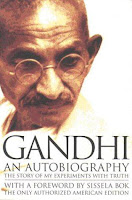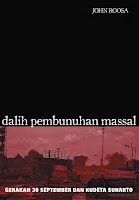UFUK PRESS
PT. Cahaya Insan Suci Jl. Warga 23A, Pejaten Barat, Pasar Minggu Jakarta Selatan 12510, Indonesia Phone: 62-21 7976587, 79192866 Fax: 62-21 79190995 Homepage: www.ufukpress.com Blog : http://ufukpress.blogspot.com Email : info@ufukpress.comBook Categories
- Agricultural
- Art
- Autobiography
- Automotive
- Biography
- Business
- Calculus
- Children's
- Comic
- Computer
- Cooking
- Culture
- Dictionary
- Economic
- Education
- Electronic
- Essay
- Exterior-Interior
- Fashion
- Free Ebook
- Games
- Garden
- Gender-HAM
- Health-Medical
- Humor
- Journalism
- Language
- Law
- Magic
- Managemen
- Marketing
- Memoir
- Military
- Multimedia
- Music-Movie
- Mystery
- Nature
- Novel
- Parenting
- Philosophy
- Poetry
- Politics
- Publishing
- Religion
- Science
- Short Story
- Sport
- Traveling
- Youth
- Z] The End
A TRAGEDY
Label: Online Ebook Reader
AT THE HIGH SCHOOL
Label: Online Ebook Reader
PLAYING THE HUSBAND
Label: Online Ebook Reader
CHILD MARRIAGE
Label: Online Ebook Reader
CHILDHOOD
Label: Online Ebook Reader
BIRTH AND PARENTAGE
Label: Online Ebook Reader
Gandhi; An Autobiography ; The story of my experiments with truth
Title : Gandhi; An Autobiography ; The story of my experiments with truth
By : M. K. Gandhi
Publisher : NAVAJIVAN PUBLISHING HOUSE, AHMEDABAD-380014
Language : English
Edition :
Page : Full | Limited
Note : Free | Buy
__________________________________TRANSLATED FROM THE GUJARATI BY MAHADEV DESAI
GANDHI BOOK CENTRE
Bombay Sarvodaya Mandal
NAVAJIVAN PUBLISHING HOUSE
AHMEDABAD-380014
_________________________
Contents :
Chapter 1 BIRTH AND PARENTAGE
Chapter 2 CHILDHOOD
Chapter 3 CHILD MARRIAGE
Chapter 4 PLAYING THE HUSBAND
Chapter 5 AT THE HIGH SCHOOL
Chapter 6 A TRAGEDY
Chapter 7 A TRAGEDY (contd.)
Chapter 8 STEALING AND ATONEMENT
Chapter 9 MY FATHER'S DEATH AND MY DOUBLE SHAME
Chapter 10 GLIMPSES OF RELIGION
Chapter 11 PREPARATION FOR ENGLAND
Chapter 12 OUTCASTE
Chapter 13 IN LONDON AT LAST
Chapter 14 MY CHOICE
Chapter 15 PLAYING THE ENGLISH GENTLEMAN
Chapter 16 CHANGES
Chapter 17 EXPERIMENTS IN DIETETICS
Chapter 18 SHYNESS MY SHIELD
Chapter 19 THE CANKER OF UNTRUTH
Chapter 20 ACQUAINTANCE WITH RELIGIONS
Chapter 21 NIRBAL KE BAL RAM
Chapter 22 NARAYAN HEMCHANDRA
Chapter 23 THE GREAT EXHIBITION
Chapter 24 'CALLED'-BUT THEN ?
Chapter 25 MY HELPLESSNESS
Chapter 26 RAYCHANDBHAI
Chapter 27 HOW I BEGAN LIFE
Chapter 28 THE FIRST CASE
Chapter 29 THE FIRST SHOCK
Chapter 30 PREPARING FOR SOUTH AFRICA
Chapter 31 ARRIVAL IN NATAL
Chapter 32 SOME EXPERIENCES
Chapter 33 ON THE WAY TO PRETORIA
Chapter 34 MORE HARDSHIPS
Chapter 35 FIRST DAY IN PRETORIA
Chapter 36 CHRISTIAN CONTACTS
Chapter 37 SEEKING TOUCH WITH INDIANS
Chapter 38 WHAT IT IS TO BE A 'COOLIE'
Chapter 39 PREPARATION FOR THE CASE
Chapter 40 RELIGIOUS FERMENT
Chapter 41 MAN PROPOSES, GOD DISPOSES
Chapter 42 SETTLED IN NATAL
Chapter 43 NATAL INDIAN CONGRESS
Chapter 44 COLOUR BAR
Chapter 45 BALASUNDARAM
Chapter 46 THE £ 3 TAX
Chapter 47 COMPARATIVE STUDY OF RELIGIONS
Chapter 48 AS A HOUSEHOLDER
Chapter 49 HOMEWARD
Chapter 50 IN INDIA
Chapter 51 TWO PASSIONS
Chapter 52 THE BOMBAY MEETING
Chapter 53 POONA AND MADRAS
Chapter 54 'RETURN SOON'
Chapter 55 RUMBLINGS OF THE STORM
Chapter 56 THE STORM
Chapter 57 THE TEST
Chapter 58 THE CALM AFTER THE STORM
Chapter 59 EDUCATION OF CHILDREN
Chapter 60 SPIRIT OF SERVICE
Chapter 61 BRAHMACHARYA -- I
Chapter 62 BRAHM ACHARYA - II
Chapter 63 SIMPLE LIFE
Chapter 64 THE BOER WAR
Chapter 65 SANITARY REFORM AND FAMINE RELIEF
Chapter 66 RETURN TO INDIA
Chapter 67 IN INDIA AGAIN
Chapter 68 CLERK AND BEARER
Chapter 69 IN THE CONGRESS
Chapter 70 LORD CURZON'S DARBAR
Chapter 71 A MONTH WITH GOKHALE -- I
Chapter 72 A MONTH WITH GOKHALE -- II
Chapter 73 A MONTH WITH GOKHALE -- III
Chapter 74 IN BENARES
Chapter 75 SETTLED IN BOMBAY
Chapter 76 FAITH ON ITS TRIAL
Chapter 77 TO SOUTH AFRICA AGAIN
Chapter 78 'LOVE'S LABOUR'S LOST'?
Chapter 79 AUTOCRATS FROM ASIA
Chapter 80 POCKETED THE INSULT
Chapter 81 QUICKENED SPIRIT OF SACRIFICE
Chapter 82 RESULT OF INTROSPECTION
Chapter 83 A SACRIFICE TO VEGETARIANISM
Chapter 84 EXPERIMENTS IN EARTH AND WATER TREATMENT
Chapter 85 A WARNING
Chapter 86 A TUSSLE WITH POWER
Chapter 87 A SACRED RECOLLECTION AND PENANCE
Chapter 88 INTIMATE EUROPEAN CONTACTS
Chapter 89 EUROPEAN CONTACTS (Contd.)
Chapter 90 'INDIAN OPINION'
Chapter 91 COOLIE LOCATIONS OR GHETTOS?
Chapter 92 THE BLACK PLAGUE - I
Chapter 93 THE BLACK PLAGUE - II
Chapter 94 LOCATION IN FLAMES
Chapter 95 THE MAGIC SPELL OF A BOOK
Chapter 96 THE PHOENIX SETTLEMENT
Chapter 97 THE FIRST NIGHT
Chapter 98 POLAK TAKES THE PLUNGE
Chapter 99 WHOM GOD PROTECTS
Chapter 100 A PEEP INTO THE HOUSEHOLD
Chapter 101 THE ZULU 'REBELLION'
Chapter 102 HEART SEARCHINGS
Chapter 103 THE BIRTH OF SATYAGRAHA
Chapter 104 MORE EXPERIMENTS IN DIETETICS
Chapter 105 KASTURBAI'S COURAGE
Chapter 106 DOMESTIC SATYAGRAHA
Chapter 107 TOWARDS SELF-RESTRAINT
Chapter 108 FASTING
Chapter 109 AS SCHOOLMASTER
Chapter 110 LITERARY TRAINING
Chapter 111 TRAINING OF THE SPIRIT
Chapter 112 TARES AMONG THE WHEAT
Chapter 113 FASTING AS PENANCE
Chapter 114 TO MEET GOKHALE
Chapter 115 MY PART IN THE WAR
Chapter 116 A SPIRITUAL DILEMMA
Chapter 117 MINIATURE SATYAGRAHA
Chapter 118 GOKHALE'S CHARITY
Chapter 119 TREATMENT OF PLEURISY
Chapter 120 HOMEWARD
Chapter 121 SOME REMINISCENCES OF THE BAR
Chapter 122 SHARP PRACTICE?
Chapter 123 CLIENTS TURNED CO-WORKERS
Chapter 124 HOW A CLIENT WAS SAVED
Chapter 125 THE FIRST EXPERIENCE
Chapter 126 WITH GOKHALE IN POONA
Chapter 127 WAS IT A THREAT ?
Chapter 128 SHANTINIKETAN
Chapter 129 WOES OF THIRD CLASS PASSENGERS
Chapter 131 KUMBHA MELA
Chapter 132 LAKSHMAN JHULA
Chapter 133 FOUNDING OF THE ASHRAM
Chapter 134 ON THE ANVIL
Chapter 135 ABOLITION OF INDENTURED EMIGRATION
Chapter 136 THE STAIN OF INDIGO
Chapter 137 THE GENTLE BIHARI
Chapter 138 FACE TO FACE WITH AHIMSA
Chapter 139 CASE WITHDRAWN
Chapter 140 METHODS OF WORK
Chapter 141 COMPANIONS
Chapter 142 PENETRATING THE VILLAGES
Chapter 143 WHEN A GOVERNOR IS GOOD
Chapter 144 IN TOUCH WITH LABOUR
Chapter 145 A PEEP INTO THE ASHRAM
Chapter 146 THE FAST
Chapter 148 'THE ONION THIEF'
Chapter 149 END OF KHEDA SATYAGRAHA
Chapter 151 RECRUITING CAMPAIGN
Chapter 152 NEAR DEATH's DOOR
Chapter 153 THE ROWLATT BILLS AND MY DILEMMA
Chapter 154 THAT WONDERFUL SPECTACLE !
Chapter 155 THAT MEMORABLE WEEK ! --I
Chapter 156 THAT MEMORABLE WEEK !---II
Chapter 157 'A HIMALAYAN MISCALCULATION'
Chapter 158 'NAVAJIVAN' AND 'YOUNG INDIA'
Chapter 159 IN THE PUNJAB
Chapter 160 THE KHILAFAT AGAINST COW PROTECTION ?
Chapter 161 THE AMRITSAR CONGRESS
Chapter 162 CONGRESS INITIATION
Chapter 163 THE BIRTH OF KHADI
Chapter 164 FOUND AT LAST !
Chapter 165 AN INSTRUCTIVE DIALOGUE
Chapter 166 ITS RISING TIDE
Label: Autobiography
Youth
Title : _ _
By : _ _
Publisher : , Indonesia
Language : Indonesia
Edition : 2008
Page : Full | Limited
Note : Free | Buy
Label: Youth
Traveling
Title : _ _
By : _ _
Publisher : , Indonesia
Language : Indonesia
Edition : 2008
Page : Full | Limited
Note : Free | Buy
Label: Traveling
Sport
Title : _ _
By : _ _
Publisher : , Indonesia
Language : Indonesia
Edition : 2008
Page : Full | Limited
Note : Free | Buy
Label: Sport
Short Story
Title : _ _
By : _ _
Publisher : , Indonesia
Language : Indonesia
Edition : 2008
Page : Full | Limited
Note : Free | Buy
Label: Short Story
Science
Title : _ _
By : _ _
Publisher : , Indonesia
Language : Indonesia
Edition : 2008
Page : Full | Limited
Note : Free | Buy
Label: Science
Religion
Title : _ _
By : _ _
Publisher : , Indonesia
Language : Indonesia
Edition : 2008
Page : Full | Limited
Note : Free | Buy
Label: Religion
Publishing
Title : _ _
By : _ _
Publisher : , Indonesia
Language : Indonesia
Edition : 2008
Page : Full | Limited
Note : Free | Buy
Label: Publishing
Poetry
Title : _ _
By : _ _
Publisher : , Indonesia
Language : Indonesia
Edition : 2008
Page : Full | Limited
Note : Free | Buy
Label: Poetry
Philosophy
Title : _ _
By : _ _
Publisher : , Indonesia
Language : Indonesia
Edition : 2008
Page : Full | Limited
Note : Free | Buy
Label: Philosophy
Parenting
Title : _ _
By : _ _
Publisher : , Indonesia
Language : Indonesia
Edition : 2008
Page : Full | Limited
Note : Free | Buy
Label: Parenting
Mystery
Title : _ _
By : _ _
Publisher : , Indonesia
Language : Indonesia
Edition : 2008
Page : Full | Limited
Note : Free | Buy
Label: Mystery
Music-Movie
Title : _ _
By : _ _
Publisher : , Indonesia
Language : Indonesia
Edition : 2008
Page : Full | Limited
Note : Free | Buy
Label: Music-Movie
Multimedia
Title : _ _
By : _ _
Publisher : , Indonesia
Language : Indonesia
Edition : 2008
Page : Full | Limited
Note : Free | Buy
Label: Multimedia
Military
Title : _ _
By : _ _
Publisher : , Indonesia
Language : Indonesia
Edition : 2008
Page : Full | Limited
Note : Free | Buy
Label: Military
Marketing
Title : _ _
By : _ _
Publisher : , Indonesia
Language : Indonesia
Edition : 2008
Page : Full | Limited
Note : Free | Buy
Label: Marketing
Managemen
Title : _ _
By : _ _
Publisher : , Indonesia
Language : Indonesia
Edition : 2008
Page : Full | Limited
Note : Free | Buy
Label: Managemen
Law
Title : _ _
By : _ _
Publisher : , Indonesia
Language : Indonesia
Edition : 2008
Page : Full | Limited
Note : Free | Buy
Label: Law
Language
Title : _ _
By : _ _
Publisher : , Indonesia
Language : Indonesia
Edition : 2008
Page : Full | Limited
Note : Free | Buy
Label: Language
Journalism
Title : _ _
By : _ _
Publisher : , Indonesia
Language : Indonesia
Edition : 2008
Page : Full | Limited
Note : Free | Buy
Label: Journalism
Humor
Title : _ _
By : _ _
Publisher : , Indonesia
Language : Indonesia
Edition : 2008
Page : Full | Limited
Note : Free | Buy
Label: Humor
Health - Medical
Title : _ _
By : _ _
Publisher : , Indonesia
Language : Indonesia
Edition : 2008
Page : Full | Limited
Note : Free | Buy
Label: Health-Medical
Garden
Title : _ _
By : _ _
Publisher : , Indonesia
Language : Indonesia
Edition : 2008
Page : Full | Limited
Note : Free | Buy
Label: Garden
Gender
Title : _ _
By : _ _
Publisher : , Indonesia
Language : Indonesia
Edition : 2008
Page : Full | Limited
Note : Free | Buy
Label: Gender-HAM
Education
Title : _ _
By : _ _
Publisher : , Indonesia
Language : Indonesia
Edition : 2008
Page : Full | Limited
Note : Free | Buy
Label: Education
Electronic
Title : _ _
By : _ _
Publisher : , Indonesia
Language : Indonesia
Edition : 2008
Page : Full | Limited
Note : Free | Buy
Label: Electronic
Essay
Title : _ _
By : _ _
Publisher : , Indonesia
Language : Indonesia
Edition : 2008
Page : Full | Limited
Note : Free | Buy
Label: Essay
Fashion
Title : _ _
By : _ _
Publisher : , Indonesia
Language : Indonesia
Edition : 2008
Page : Full | Limited
Note : Free | Buy
Label: Fashion
Games
Title : _ _
By : _ _
Publisher : , Indonesia
Language : Indonesia
Edition : 2008
Page : Full | Limited
Note : Free | Buy
Label: Games
Economic
Title : _ _
By : _ _
Publisher : , Indonesia
Language : Indonesia
Edition : 2008
Page : Full | Limited
Note : Free | Buy
Label: Economic
Cooking
Title : _ _
By : _ _
Publisher : , Indonesia
Language : Indonesia
Edition : 2008
Page : Full | Limited
Note : Free | Buy
Label: Cooking
Culture
Title : _ _
By : _ _
Publisher : , Indonesia
Language : Indonesia
Edition : 2008
Page : Full | Limited
Note : Free | Buy
Label: Culture
Dictionary
Title : _ _
By : _ _
Publisher : , Indonesia
Language : Indonesia
Edition : 2008
Page : Full | Limited
Note : Free | Buy
Label: Dictionary
Perburuan
Publisher : Hasta Mitra, Indonesia
Language : Indonesia
Edition : -
Page : Full | Limited
Note : Free | Buy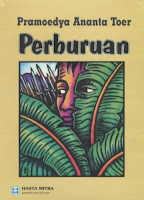 Perburuan
Perburuan
Pramoedya Ananta Toer
Label: Novel
Nyanyi Sunyi Seorang Bisu ( 2 )
Publisher : Hasta Mitra, Indonesia
Language : Indonesia
Edition : -
Page : Full | Limited
Note : Free | Buy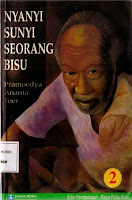 Nyanyi Sunyi Seorang Bisu ( 2 )
Nyanyi Sunyi Seorang Bisu ( 2 )
Pramoedya Ananta Toer
Label: N] Sastra-Budaya
Larry King ; Master Mic
Title : Larry King ; Master Mic
Original Title : Larry King ; My Remarkable Journey
By : Larry King
Publisher : Ufuk Publishing House, Indonesia
Language : Indonesia
Edition : 2009
Page : Full | Limited
Note : Free | Buy
Label: K) Inspirasi
Atlantis ; The Lost Continent Finally Found
 Atlantis ; The Lost Continent Finally Found ; The Devinitive Localization of Plato's Lost Civilization ; Indonesia Ternyata Tempat Lahir Peradaban Dunia
Atlantis ; The Lost Continent Finally Found ; The Devinitive Localization of Plato's Lost Civilization ; Indonesia Ternyata Tempat Lahir Peradaban Dunia
By Prof. Arysio Santos
Publisher : Ufuk Publishing House, Indonesia
Language : Indonesia
Edition : 2009
Page : Full | Limited
Label: H] Sejarah, History
Dalih Pembunuhan Massal
Title : Dalih Pembunuhan Massal
Original Title : Pretext for Mass Murder ; The September 30th Movement and Soeharto's Coup d'Etat Indonesia
By : John Roosa
Publisher : Institut Sejarah Sosial Indonesia dan Hasta Mitra, Indonesia
Language : Indonesia
Edition : 2008
Page : Full | Limited
Note : Free | Buy
Label: H] Sejarah
Gadis Pantai

 Gadis Pantai
Gadis Pantai
Pramoedya Ananta Toer
Halaman : Full
Bahasa :Indonesia
Penerbit : Lentera Dipantara, Indonesia
Baca Sinopsis/ Artikel/ Resensi/ Opini Terkait
Buku ini menceritakan nasib seorang wanita yang lahir di sebuah kampung nelayan di pantai utara Jawa, dekat kota Rembang. Pada umur 14 tahun dia dinikahkan dengan seorang pembesar asal Bima. Pembesar itu Bendoro, tidak menghadiri upacara pernikahan sendiri, hanya diwakili sebilah keris. Gadis itu tidak mau pindah ke rumah mewah di kota itu, tapi terus diantarkan orang tuanya yang berpikir Gadis Pantai akan hidup berbahagia dan nyaman di sana. Di rumah Bendoro tersebut ada seorang pembantu tua yang mengajarkan kepada Gadis Pantai segalanya yang harus dia tahu dan lakukan untuk memelihara kenangan suaminya. Gadis pantai yang namanya diganti jadi Mas Nganten, dan pembantu tua itu saling menyukai. Selain dia tidak ada orang pun di rumah itu yang peduli pada Mas Nganten yang merasa sangat sendirian. Suaminya mengunjungi dia jarang saja. Sesudah pembantu mengkritik anak-anak yang ada di rumah, dia diusir walaupun sudah bekerja di rumah itu bertahun-tahun. Pembantu berikutnya ternyata sangat sombong dan jahat dan Mas Nganten merasa terancam. Akhirnya dia sadar bahwa pernikahan dia hanya percobaan saja dan bahwa suaminya akan menikah lagi dengan wanita segolongan. Gadis pantai mendapat ijin untuk mengunjungi orang tuanya di kampung. Disitu dia mengalami perubahan perilaku orang kampung terhadap dirinya. Dia dianggap Bendoro, priyayi bukan orang kampung lagi. Itu merupakan hal yang sangat menyedihkan dan menyakitkan buat Gadis Pantai. Waktu dia sudah tinggal di kota selama tiga tahun, dia melahirkan bayi perempuan. Beberapa saat kemudian dia diusir dari rumah Bendoro. Bayinya tertingal disana. Begini berakhir kisah si Gadis Pantai. Kisah berlangsung pada awal abad ke-20 dan menggambarkan hal-hal masyarakat pada saat itu. Memang masih ada perbedaan antara golongan-golongan sekarang juga, tetapi pada waktu itu orang biasa tidak punya hak apapun dan diperlakukan secara tidak manusiawi. Pramoedya Ananta Toer melukiskan keadaan dan suasana baik kota baik kampung dengan tajam. Penjelasan sifat dan pikiran-pikiran tokoh dan lingkungannya membuat pembaca sempat mengenal mereka seolah-olah dalam kenyataan. Sumber : Klik
Label: N] Sastra-Budaya
Arkeologi Sejarah Pemikiran Arab Islam
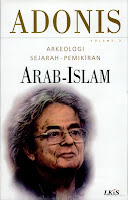 Judul : Arkeologi Sejarah Pemikiran Arab - Islam (Vol.2)
Judul : Arkeologi Sejarah Pemikiran Arab - Islam (Vol.2)
Penulis : Adonis
Halaman : Terbatas
Bahasa :Indonesia
Penerbit : LKiS Yogyakarta, Indonesia
Baca Sinopsis/ Artikel/ Resensi/ Opini Terkait
Label: A] AGAMA

